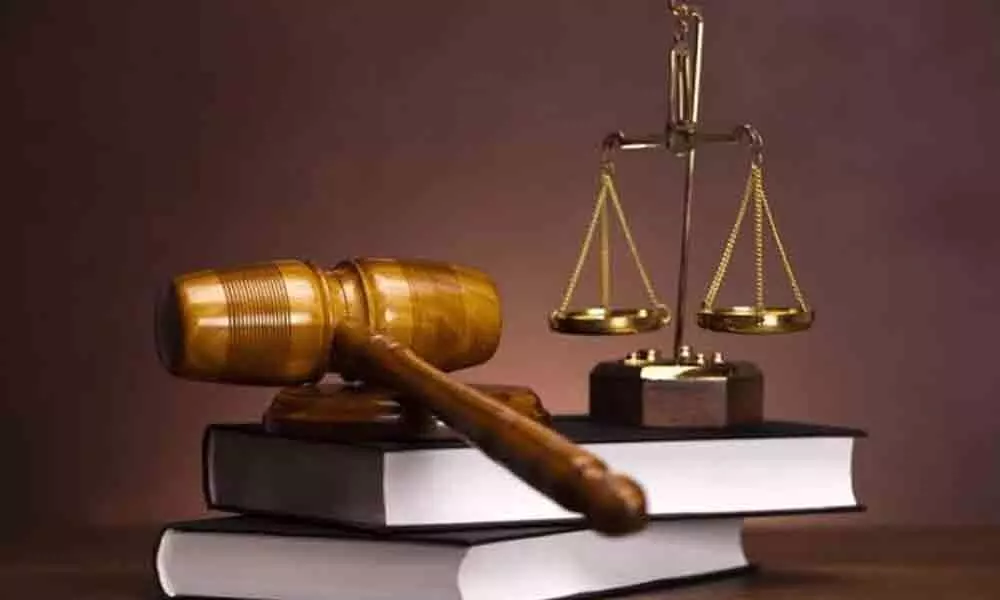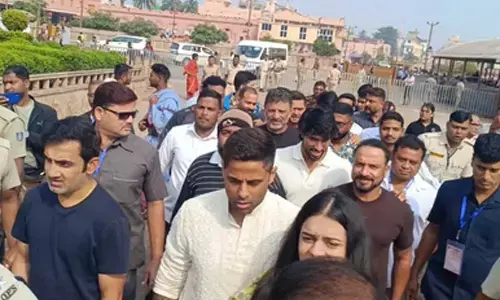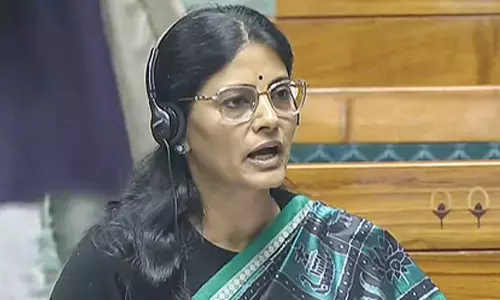Provoking Hindus, not in the interest of Muslims

Although the discerning citizens could read between the lines from day one when the tamasha called, CAA-NRC started soon after passing of the Citizenship (Amendment) Act (CAA), after gory incidents of Jamia Millia Islamia and Jawaharlal Nehru University, it has become crystal clear that these Jehadi-Tukde Tukde gangs are bent upon unleashing a trail of violence in the otherwise peaceful country.
Although the discerning citizens could read between the lines from day one when the tamasha called, CAA-NRC started soon after passing of the Citizenship (Amendment) Act (CAA), after gory incidents of Jamia Millia Islamia and Jawaharlal Nehru University, it has become crystal clear that these Jehadi-Tukde Tukde gangs are bent upon unleashing a trail of violence in the otherwise peaceful country.
The anti-national forces with the overt and covert support of Congress, Left and communal parties like AIMIM have been indulging in the planned hate campaign.
They openly challenge the Hindu might and vow to indulge in bloodbath. True, such extremist elements are few, but with the modern- day reach of technology, the venom spreads beyond the limits of imagination.
The net result of such unbridled statements by the tamasha managers would be, to say the least, disastrous. Obviously in a country of 80 per cent Hindus, it would be too much to expect that everyone will be as tolerant as we, a handful of self-restrained people are.
The firing incident on January 30 in Jamia Millia Islamia University by a juvenile Hindu speaks volumes for this.
Not that the tamasha organisers are not aware about the possible fallout of their Pakistan sponsored events, but unfortunately it is precisely what they want. True, the government will leave no stone unturned to put an end to this nuisance, still it will take further five to ten decades to assuage the hurt feelings of Hindus who for no fault of theirs are insulated, humiliated, abused, challenged and provoked.
Therefore, it is high time that these fringe communal elements mended their ways in the right earnest, otherwise the Hindus driven to the wall, may be constrained to pay them back in the same coin. And that would not be in the interest of large peace-loving Muslim community.
For, if Hindus do not declare this country as a Hindu Rashtra, it is not due to their weakness or incapacity, but it is because of their genuine commitment to the noble ideals of peaceful coexistence and tolerance.
By provoking Hindus, some would certainly eschew these noble principles of peaceful coexistence and tolerance and some of them may even retaliate, thereby consequently throwing the country into a turmoil.
Hope, the wise counsel will prevail over the tamasha managers and they would wind up the ugly show of so-called peaceful protests in different parts of the country at once.
Reprieve for Nirbhaya convicts for now
The much-hyped Nirbhaya case is alluding its logical end. Earlier, February1was fixed for the hanging of all four condemned convicts, but on January 31, the Patiala House Court in New Delhi stayed its earlier order citing the pendency of mercy petition by a convict before the President of India.
The court rightly observed that a convict has every right to exhaust all available legal remedies irrespective of the seriousness of his crime.
Though there has been a great public resentment over the long delay in punishing the perpetrators of heinous crimes of gang-rape and murder, the legal process as it exists today has to be followed.
Hope, the proposed reforms in criminal laws would address this point too, because the justice delayed is justice denied.
Counsel, thou shall not cross limits: SCs
How long the rope should be, what should be the limit of discretion that a lawyer could exercise on behalf of his client and when could by his conduct in the court bind his client, these were the questions dealt with by a three judge bench of the Supreme Court in Omprakash vs Suresh Kumar.
The bench headed by Justice A M Khanwilkar, in its judgement on January 30 held that the unequivocal statement made by a counsel in the court on behalf of his client can be relied upon and the client will be bound by it.
However, the court relying on the verdict in Himalayan Cooperative Group Housing Society & Others vs Balwant Singh & Others observed that an advocate is merely a link between his client and the court, and therefore, it is desirable to take instructions from his client before making any commitment to the court, more particularly in the matter where the basis object of the litigation is likely to be affected.
Justice delayed, but not denied
Contrary to the adage, justice delayed is justice denied, here is a case where the petitioner (though posthumously) has got justice after 42 years with the Bombay High Court allowing the plea for the restoration of the case.
The case relates to Kamala A Bharani vs Mohan D Chulani. The petitioner had filled the case for eviction of tenant on the ground of bona fide requirement and repossession of the premises in 1978. After filing of the examination-in-chief the matter got delayed considerably.
Finally, when it was listed for hearing on June 26, 1998, there was no representation from both the sides. Hence, the case was dismissed for non-prosecution.
On the same day, after reaching the court, the counsel for the plaintiff filed the restoration petition wherein he stated that on the day of hearing though her client had accompanied him against the medical advice for the court at 9 am on the way, her health worsened and therefore, had to go back.
However, this plea was rejected by the trial court and thus, the matter stood dismissed.
Aggrieved petitioner filed a writ petition in Mumbai High Court which observed that the long pendency of the case was perhaps in the mind of the lower court and therefore, the restoration petition was dismissed.
The High Court added that the petitioner has fully explained the circumstances in which she could not attend the court. Further, the petitioner's counsel too, has shown diligence in filing the petition for restoration on the same day.
The High Court, therefore, allowed the writ petition and directed the trial court to complete trial within a period of one year.
Now online certified copies
Jabalpur district court has earned the distinction of being the first district court in the country to have introduced the system of providing certified copies of its orders online.
Earlier, Indore bench of the Madhya Pradesh High Court has earned this distinction being the first High Court in the country to provide certified copies of its orders online.
The litigants and their advocates can now apply through the High Court's website for certified copies online and make payment therefor online. The certified copies could be downloaded or received by post.
Indeed, this facility comes as a great relief to the litigants as well as legal fraternity and nerds to be extended to all courts in the country.















